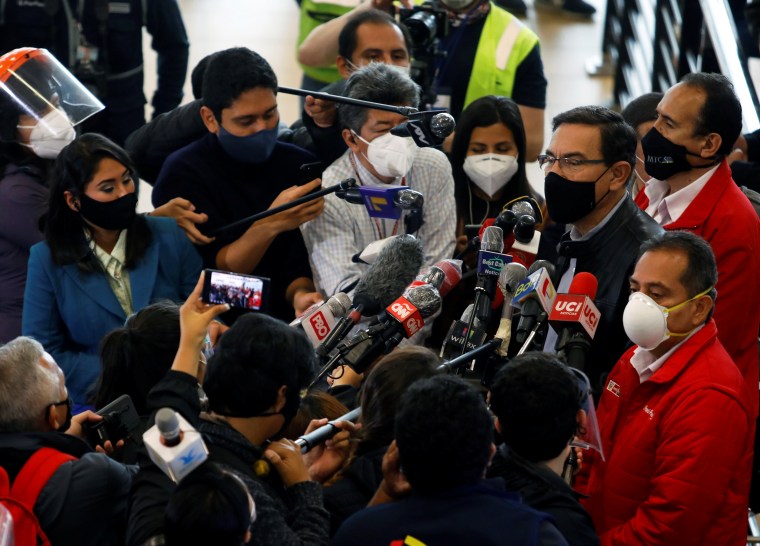In Bolivia, Brazil, El Salvador, and Peru, emergency measures in response to COVID-19 restricted the media’s capacity to report freely and the public’s ability to access information, including critical information about public health interventions and the pandemic itself, a report by the Committee to Protect Journalists and Thomson Reuters Foundation’s TrustLaw program found. The report, published June 8, also found that legislation that predated COVID-19 in the Dominican Republic was used to prosecute individuals for publishing “false news” about the pandemic.
The in-depth report, titled “COVID-19 Response Measures Affecting Media Freedom,” analyzes how emergency measures adopted in response to the COVID-19 pandemic impact press freedom, freedom of expression, and access to information in the five Latin American countries.
Produced in partnership with pro bono teams from law firms in the five countries, the bilingual report is a comparative analysis of the new laws, executive orders, and other legal measures enacted in these countries in response to the pandemic in the six months following the first identified case of COVID-19 in Latin America in February 2020. The report looks at how those measures negatively impacted freedom of expression and access to information during that six-month period, or their potential to restrict these fundamental rights in the future.
Despite guidance from international bodies like the Inter-American Commission on Human Rights, whose Resolution 01/20, adopted in April 2020, offered specific recommendations for countries to “address COVID-19 from a human rights perspective,” national leadership across the Americas failed to account for the needs of journalists and implemented regulations with overly broad language that opened the door to greater criminalization of speech. In some especially concerning cases, already repressive leaders used the pandemic as a pretext to increase censorship, undermine transparency, and restrict public access to information.
As the pandemic spread across the Americas, officials and policymakers failed to consider the specific needs of the press to maintain access to their workplaces and reporting locations, imposing curfews and quarantine orders without exceptions for the media. Despite the public’s clear need for reliable information, journalists did not always make the cut as essential workers — of the countries analyzed, the Dominican Republic and Peru were the only ones to proactively define media work as an “essential service” or include exemptions for media workers from the beginning. Even in Peru, law enforcement was not always aware of the exceptions, leading to numerous cases of journalists harassed or briefly detained by police for breaking quarantine, even when carrying the necessary identification allowing them to travel freely, as CPJ documented at the time.
The rush to draft and approve many of these executive orders and emergency legislation also meant the language itself was often overly broad, leaving them open to interpretation, and in some cases introducing new crimes not included in the national criminal code under the guise of protecting public health. In Bolivia, the government of interim president Jeanine Áñez was forced to walk back a series of executive decrees that allowed for criminal charges against individuals who spread “disinformation” or caused “uncertainty in the population,” without defining either of those terms. In Brazil, multiple lawmakers have presented bills that would establish criminal penalties for publishing or sharing “fake news” — a phrase that has no established legal definition under Brazilian law.
In the most troubling cases, the report found that COVID-19 offered an excuse for leaders with authoritarian leanings to further restrict access to official information and shield themselves from questions or criticism. The administration of Salvadoran President Nayib Bukele funneled information through a few select sources, offering official updates only through the presidential press secretariat or, increasingly, the president’s own Twitter account. In both El Salvador and Brazil, the national governments reduced or suspended the activities of government entities tasked with ensuring transparency and responding to public requests for information, effectively cutting off sources of vital data on public interest issues such as government contracts for medical centers and supplies, vaccine rollout, and even hospitalization and death rates.
The full report is available in English and Spanish here.
